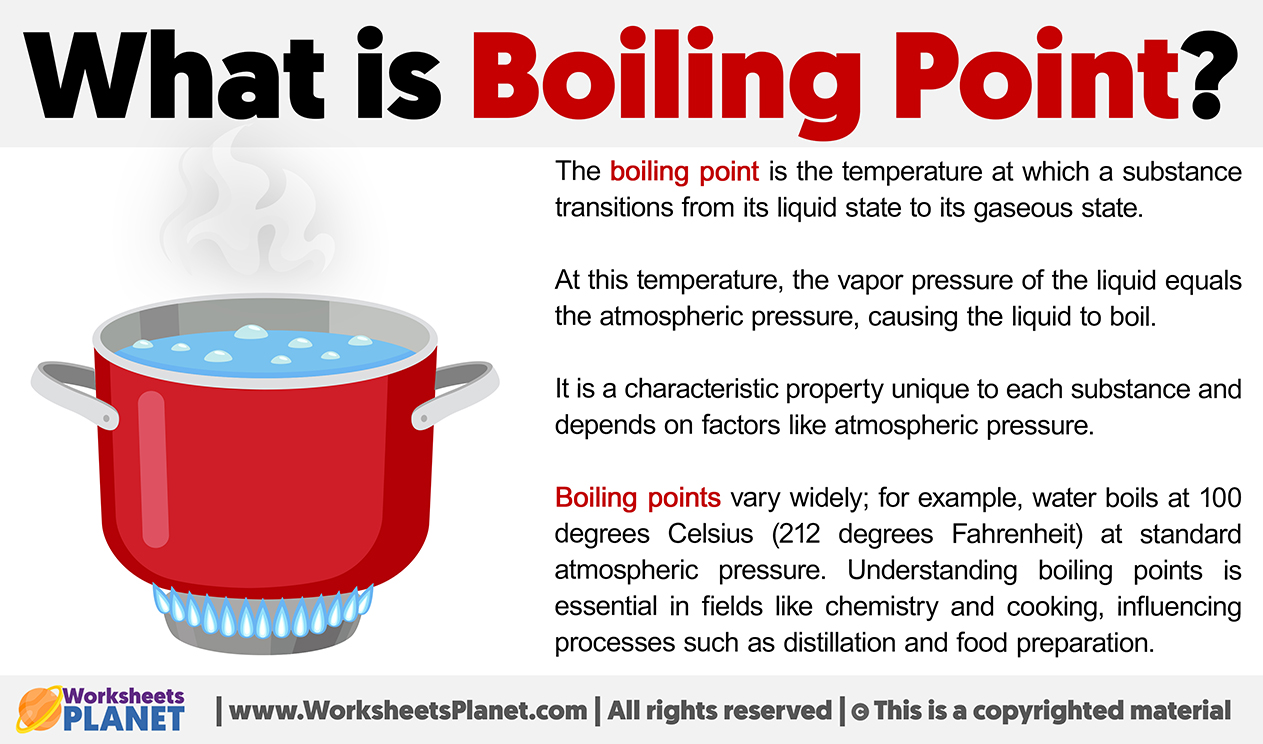The boiling point is the temperature at which a substance transitions from its liquid state to its gaseous state. At this temperature, the vapor pressure of the liquid equals the atmospheric pressure, causing the liquid to boil.

It is a characteristic property unique to each substance and depends on factors like atmospheric pressure.
Boiling points vary widely; for example, water boils at 100 degrees Celsius (212 degrees Fahrenheit) at standard atmospheric pressure. Understanding boiling points is essential in fields like chemistry and cooking, influencing processes such as distillation and food preparation.

